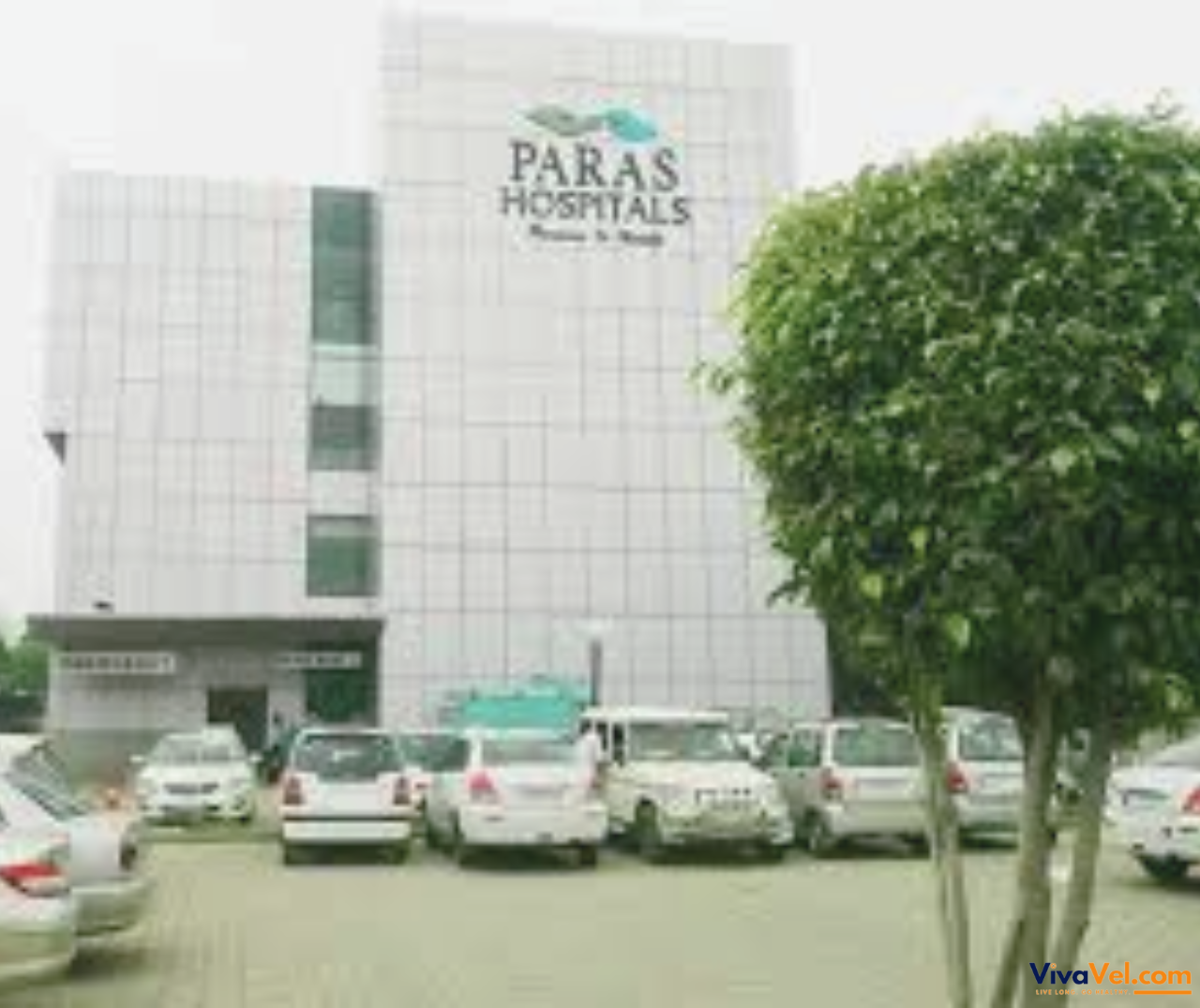info@vivavel.com
+919818262686
+919818262686
 info@vivavel.com
info@vivavel.com +919818262686
+919818262686Primary bone cancer is a type of cancer that originates directly in the cells of the bones. This differs from secondary bone cancer, which spreads to the bones from other parts of the body. Although primary bone cancer is rare, it is a serious disease that requires prompt medical attention for better outcomes. Common symptoms include pain, swelling, or a lump in the affected bone. The pain may worsen at night or during physical activity. Sometimes, the bones become weak and can break easily, even with minor injuries. There are several types of primary bone cancer, with osteosarcoma and Ewing sarcoma being the most common. Treatment usually involves a combination of surgery, chemotherapy, and radiation therapy to remove or shrink the tumor. Early diagnosis increases the chances of successful treatment. If you notice any unusual bone pain or swelling that persists, it's important to see a doctor. Regular check-ups can help detect primary bone cancer early, improving treatment options.
 The symptoms of primary bone cancer can be subtle at first but often become more noticeable over time. Common symptoms include:
The symptoms of primary bone cancer can be subtle at first but often become more noticeable over time. Common symptoms include:
Bone pain: Persistent or worsening pain in the affected bone, especially at night or during activity.
Swelling: A lump or swelling near the bone, which may feel soft or firm.
Fractures: Weakened bones may fracture or break easily.
Fatigue: Feeling unusually tired or weak.
Unintended weight loss: Sudden and unexplained loss of weight.
Limited movement: Reduced mobility in a limb or joint, particularly if the cancer is near a joint.

 The exact cause of primary bone cancer is not well understood, but certain genetic and environmental factors may contribute. Some factors associated with primary bone cancer include:
The exact cause of primary bone cancer is not well understood, but certain genetic and environmental factors may contribute. Some factors associated with primary bone cancer include:
Genetic mutations: Inherited alterations in specific genes can raise the risk.
Radiation exposure: Previous radiation therapy might play a role in developing bone cancer.
Bone diseases: Conditions like Paget's disease of the bone can increase the chance of developing bone cancer.
 If you experience any of these, see a doctor immediately:
If you experience any of these, see a doctor immediately:
Persistent bone pain that gets worse over time.
Unexplained swelling or a lump on the bone.
Frequent bone fractures or a bone breaking without significant injury.
Unexplained fatigue or weight loss.
Early diagnosis can increase the chances of successful treatment.
 Diagnosing primary bone cancer involves a series of tests:
Diagnosing primary bone cancer involves a series of tests:
 Imaging tests:
Imaging tests:
X-rays: To detect abnormal bone growth.
CT scan or MRI: To get detailed images of the bone and surrounding tissues.
Bone scan: A special scan to highlight cancerous areas in the bone.
PET scan: Detects cancer spread.
 Biopsy: A small sample of tissue from the affected bone is taken and examined under a microscope to confirm cancer.
Biopsy: A small sample of tissue from the affected bone is taken and examined under a microscope to confirm cancer.
 Blood tests: While these cannot directly diagnose bone cancer, they can help rule out other conditions or indicate potential abnormalities.
Blood tests: While these cannot directly diagnose bone cancer, they can help rule out other conditions or indicate potential abnormalities.
 Do's:
Do's:
Attend regular check-ups: Follow-up appointments are crucial for monitoring recovery and detecting any recurrence.
Eat a healthy diet: Proper nutrition helps maintain energy levels and supports recovery.
Exercise gently: Engage in light physical activity as recommended by your doctor to improve overall well-being and maintain muscle strength.
Stay informed: Educate yourself about your condition and treatment options.
 Don'ts:
Don'ts:
Avoid high-impact activities: Protect the affected bone by refraining from activities that may cause further injury or fractures.
Don't skip treatments: Follow through with all scheduled treatments and therapies as directed.
Avoid infections: With a weakened immune system, especially during chemotherapy, take steps to reduce your risk of infection (e.g., frequent hand washing, avoiding people who are sick).
Disclaimer:
Our medical content authors have diligently gathered and synthesized information on this topic to offer valuable insights to our readers. Drawing from a range of reputable medical journals and health resources, this content aims to enhance understanding of the subject. It's essential to remember that while this information is informative, it should not replace personalized consultation or treatment from a qualified healthcare professional. For further details, please refer to our Editorial Policy.
For this topic, our authors used some of the following resources:
Cleveland Clinic | Bone Cancer
Memorial Sloan Kettering Cancer Center | Bone Cancer Treatment





![]() Pusa Road, Radha Soami Satsang, Rajendra Place New Delhi, 110005 India
Pusa Road, Radha Soami Satsang, Rajendra Place New Delhi, 110005 India



![]() Budena Village, Sector 86, Faridabad, Haryana 121002, India
Budena Village, Sector 86, Faridabad, Haryana 121002, India



![]() Golf Course Rd, Parsvnath Exotica, DLF Phase 5, Sector 53, Gurugram, Haryana Gurgaon, 122022 India
Golf Course Rd, Parsvnath Exotica, DLF Phase 5, Sector 53, Gurugram, Haryana Gurgaon, 122022 India



![]() C-1, Sushant Lok- 1, Sector-43, Phase- I, Gurugram, Haryana, 122002
C-1, Sushant Lok- 1, Sector-43, Phase- I, Gurugram, Haryana, 122002


Dr. Pooja Agarwal stands out as one of the oncologists in Kolkata, specializing in breast cancer surgery. With over 10 years of experience, she has earned a reputatio...

Dr. Harsh Vardhan Atreya is a prominent Consultant Medical & Hemato-Oncologist specializing in Bone Marrow Transplantation. With training from esteemed institutio...

Dr. Imran Khan has joined Fortis Escorts in Okhla Road, New Delhi, as an Associate Consultant in Medical Oncology. He brings over 12 years of experience in oncology. ...

Dr. Harit K Chaturvedi heads the Max Institute of Cancer Care. He has been with Max Healthcare since 2009 and has worked hard to create one of the best cancer treatme...

Dr. Asit Arora is a highly regarded Surgical Gastroenterologist specializing in Gastrointestinal and Hepat-pancreato-biliary (HPB) surgery. He is based in the Delhi N...

Dr. Nikhil Agrawal is a distinguished Gastrointestinal (GI) and Hepato-Pancreato-Biliary (HPB) Surgical Oncologist, serving as the Director of GI-HPB Surgery and Oncology at ...
Treatment Plan & Cost within 2 days
